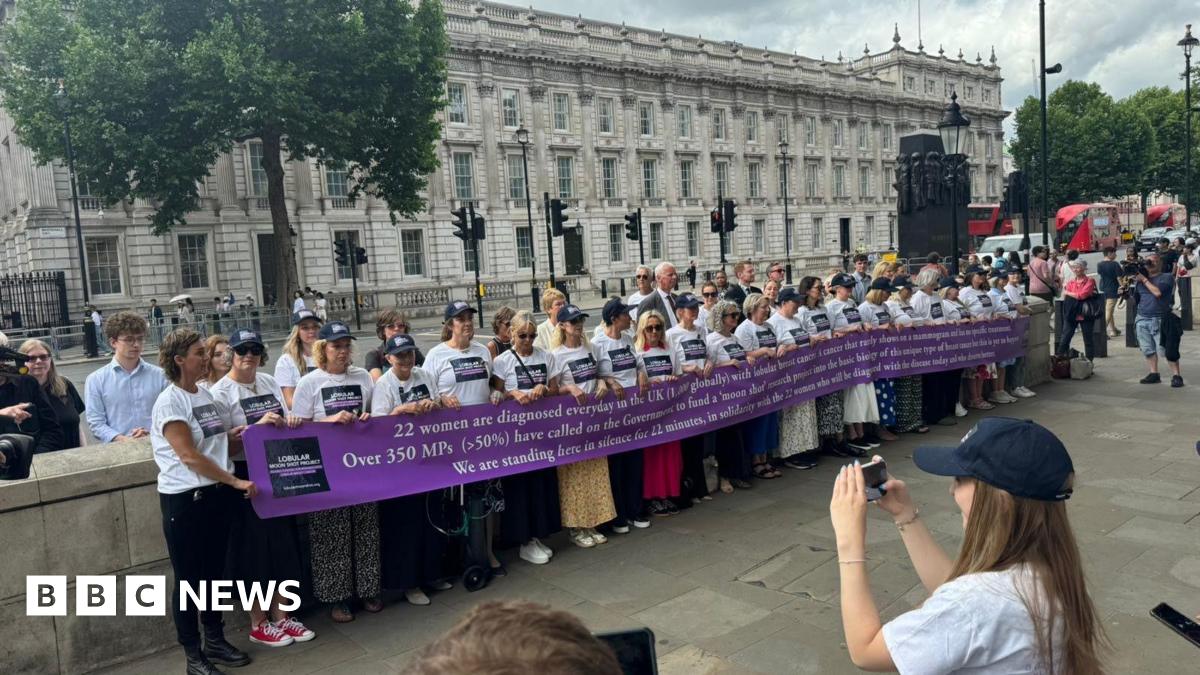Lobular Breast Cancer: Campaigners Urge Government to Prioritise Research & Awareness

Silent Threat: Lobular Breast Cancer Needs Urgent Attention
A passionate group of campaigners, representing voices from Surrey, Sussex, and across the UK, recently met with Health Secretary Wes Streeting to highlight a critical gap in breast cancer research and treatment: lobular cancer. This often-overlooked form of the disease presents unique challenges and requires a significant shift in awareness and funding.
Unlike the more commonly known ductal breast cancer, lobular cancer originates in the milk-producing lobules of the breast. This subtle beginning often means it doesn’t present as a distinct lump, making early detection significantly harder. Many women experience no noticeable symptoms, leading to delayed diagnoses and potentially poorer outcomes.
Why Lobular Cancer is Different & Often Missed
The insidious nature of lobular cancer stems from its growth pattern. It tends to spread in a diffuse, single-file pattern, infiltrating breast tissue rather than forming a well-defined mass. This makes it difficult to detect through standard screening methods like mammograms, which are primarily designed to identify lumps. Consequently, lobular cancer is frequently missed or diagnosed at a later stage.
“It’s incredibly frustrating,” explains Sarah Jones, a campaigner from Surrey who was diagnosed with lobular cancer five years ago. “I went for regular mammograms, but nothing was ever flagged. It was only because I felt a persistent ache that I finally pushed for further investigation.”
The Urgent Need for More Research
A defining characteristic of lobular cancer is the lack of specific, targeted treatments. While standard breast cancer therapies may be used, they aren't always as effective for lobular cancer due to its unique biological characteristics. This highlights the urgent need for dedicated research into the disease's underlying mechanisms and the development of tailored treatment options.
The campaigners stressed to Health Secretary Streeting the importance of increased funding for research focused specifically on lobular cancer. They are advocating for:
- Enhanced awareness campaigns: To educate women and healthcare professionals about the unique features of lobular cancer.
- Improved screening methods: Exploring alternative imaging techniques that are more sensitive to the diffuse nature of the disease.
- Targeted research grants: To support scientists investigating the specific biology of lobular cancer and developing novel therapies.
A Call for Action
The meeting with Wes Streeting represents a significant step forward in raising awareness of lobular cancer. The campaigners are hopeful that their voices will be heard and that the government will commit to prioritizing research and improving outcomes for women affected by this silent threat. They emphasize that early detection is key, and encourage women to be vigilant about any changes in their breasts and to discuss any concerns with their doctor.
“We owe it to future generations of women to ensure that lobular cancer is no longer overlooked,” concludes David Lee, a spokesperson for the campaign group. “With increased awareness, improved screening, and dedicated research, we can transform the lives of those affected by this challenging disease.”






